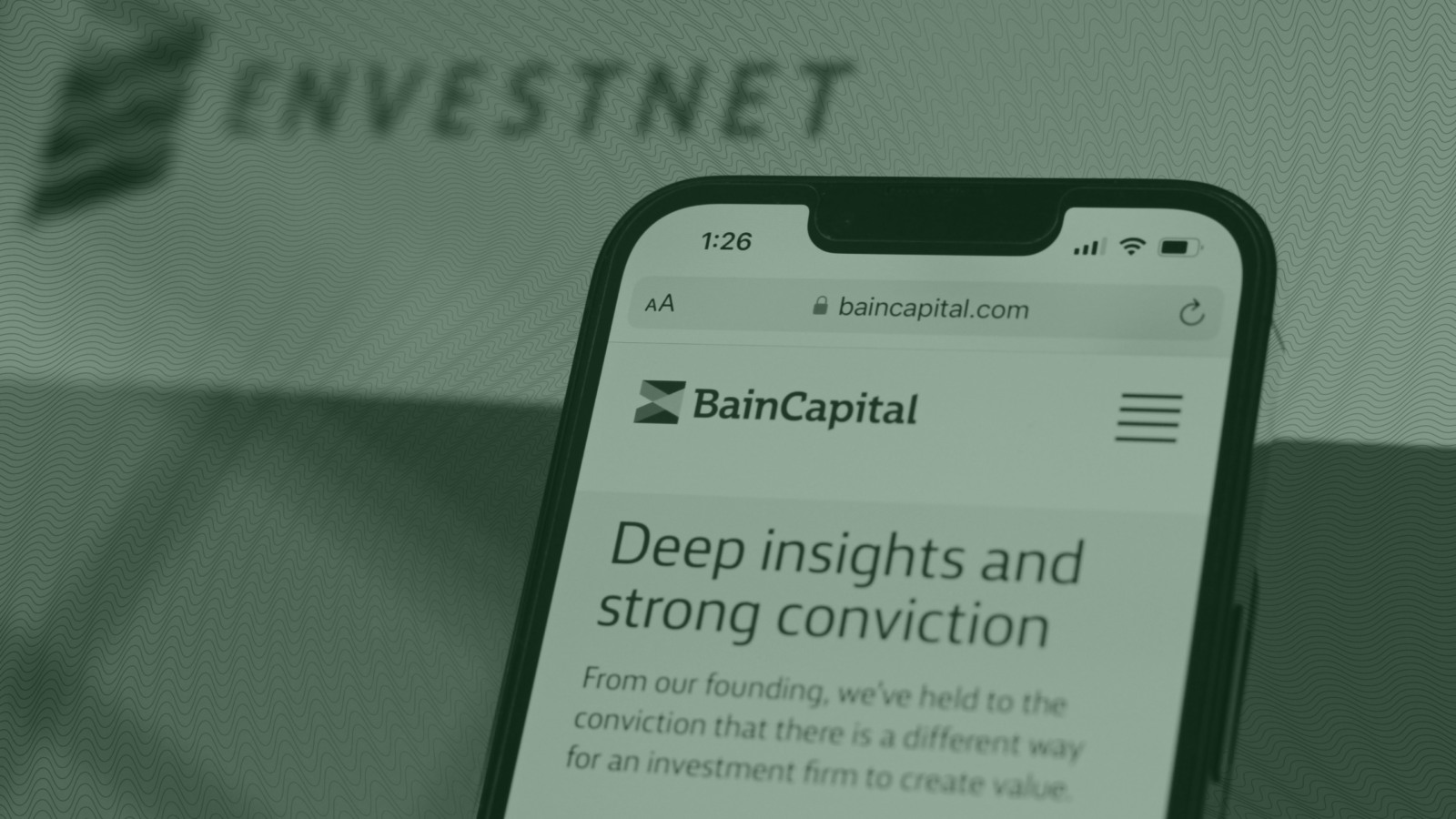Bonjour.
France’s elite may be saying au revoir after a shock far-left election win this week that could spell increased taxes upwards of 90% on its richest citizens. Financial advisors are fielding questions from the country’s well-heeled about protecting their wealth and the benefits of moving to friendlier pastures like Italy and Switzerland, according to a news report.
With an estimated 128,000 millionaires expected to become expats globally this year, the French election could be a harbinger of what’s to come. Stateside advisors will be watching November’s hotly contested US presidential election closely, with lackluster favorability rates for candidates on both sides.
If only we could all flee the country.
Envestnet Up for Sale After ‘Tumultuous’ Year

Envestnet is on the auction block again.
One of the largest wealth management software companies is reportedly closing in on a sale to private-equity firm Bain Capital that would value it at approximately $3.5 billion and affect roughly 1 in 3 financial advisors in the US. Known as a turnkey asset management provider, Envestnet serves approximately 109,000 advisors with a cumulative $6 trillion in assets. The deal could close as early as this week, according to a report from Reuters, citing people familiar with the matter.
It would also take the company private — and its financials out of the prying eyes of the investing public — and become one of the most impactful acquisitions in recent years.
Going Once, Going Twice
It’s not the first time rumors have swirled over Envestnet’s fate. After a failed attempt to go private in 2022, Envestnet has endured an attempt at a hostile takeover by activist investors and a leadership shakeup this year alone. “This transaction, if it culminates, turns the page on several tumultuous years for Envestnet,” said John O’Connell, CEO of wealth management consulting firm The Oasis Group.
Bain will likely sell underperforming aspects of the business and make changes to its executive staff. “Advisors will absolutely be impacted by this change,” O’Connell told The Daily Upside. Still, the 25-year-old company is a financial services goliath and also owns Yodlee, a data aggregator that sits on a gold mine of financial information from almost every credit card company and mortgage lender in the country. As they say, data is the new oil.
The challenge for Bain will be how it merges the revenue streams into a coherent business model that pushes shareholder value forward. “A private equity firm can hit the reset button,” industry consultant Carolyn Armitage told The Daily Upside. “Bain’s fresh perspective is likely what is needed to get Envestnet out of its slump.”
Barbarians at the Gate. Bain has made a major private-equity push into the US wealth management industry in recent years, and could become the largest player if the deal is finalized:
- The potential Envestnet acquisition follows a $1 billion investment in the Canadian-based CI Financial last year. The company rebranded to Corient Private Wealth and now has $164 billion in AUM.
- In 2021, Bain bought a stake in Carson Group, one of the largest and most well-known RIAs in the country.
PE investments in wealth management firms topped $2 trillion in 2023, up from just $400 billion in the previous year, according to data from Echelon Partners. “[Bain] would not invest in Envestnet if they did not feel that their investment will have excellent returns,” O’Connell said.
Fund Fees Hit Record Lows Last Year – And Maybe Rock Bottom
Asset managers may have finally realized that giving away funds at bargain-basement prices ain’t paying the bills.
It took more than a decade, but fund expenses may have finally hit their lowest possible levels, according to the latest Morningstar research released this week. Investors paid the least in fees for mutual funds and ETFs of any year on record in 2023 with an average expense ratio of just 36 basis points. While it’s a potentially lucrative drop of 3.4% from 2022, the pace slowed from a 7.8% decline over the previous year and is expected to continue.
“Fees are the primary revenue driver for mutual funds and ETFs,” Morningstar research analyst Zachary Evens told The Daily Upside. “Generally, the higher the fee, the higher the revenue for the asset manager.”
Mo’ Fees, Mo’ Problems
Morningstar researchers estimate investors saved nearly $3.4 billion in fees last year, which has been a huge part of the success of cheap, passive investing in products like ETFs. Since fees eat into returns over long time horizons, anyone who’s ever heard of Warren Buffett knows that cheaper is better. “End investors benefit tremendously from lower fees,” said Evens, who is also a co-author of the study. “Since fees compound over time, the lower the fee, the more of a fund’s return the investor gets to keep.”
The bad news is that asset managers may be finally raising the white flag after years of slashing fees in a brutally competitive price battle that even led to one short-lived ETF that actually paid investors. Evens and his fellow researchers expect fund expenses to hold steady or continue to flatten moving forward.
Isn’t It Ironic? It all sounds hunky-dory for investors, but in a strange twist of fate, the study also found that lower fund fees may not actually be benefitting end clients at all. Instead, the savings may be getting siphoned to help pay for financial advisors, who often assist them in choosing and purchasing the funds. It’s commonplace for advisors to charge upwards of 1% on assets under management, or a flat-fee for providing financial advice.
The study also found fees increasing for certain products:
- Fees have gotten so low that some asset managers have even been quietly raising fees.
- Fees are quickly approaching the lowest possible price point, with many already charging less than 5 basis points.
- The launch of active and alternative ETFs were behind some of the fee increases last year.
Fed Rule Change Could Save Wall Street Banks Billions

Forget saving for a rainy day — banks want their money now, and they just might get it.
The Federal Reserve is considering changes that would soften the global systemically important banks (GSIBs) surcharge, a measure designed to lower risks and provide capital buffers at America’s biggest lenders. The tweaks could free up hundreds of billions of dollars for big US banks to lend and invest as they see fit, Reuters reported.
Industry sources told The Daily Upside the surcharge — and a related proposal called the Basel III that would impose a set of risk management and oversight rules — can create all sorts of issues for banks and their private wealth arms. Opponents of the rules say they could lead to lower liquidity for ETFs, higher costs for custodians, and limited fund access to derivatives.
Doomsday Preppers
The surcharge targets banks that, if they were to ever collapse, could pose a threat to international financial systems. We’re looking at you, Great Recession.
However, new capital requirements and regulations have been building for more than a decade, and many lenders view the surcharge less as a safety net and more as wasted potential:
- Even a seemingly small surcharge of 0.5% would equal more than $8 billion in extra capital buffers for JPMorgan Chase or Bank of America, according to a Reuters calculation.
- In the first quarter of the year, the surcharge led to the eight US GSIBs holding on to $230 billion of capital. (That’s the money the banks wish they could actually use.)
Let’s Not Go Overboard: Last year, in the wake of multiple mid-sized bank failures, the Fed proposed raising overall capital requirements by 20%, an idea that Chase CEO Jamie Dimon called “flawed and poorly calibrated.” He asked, “What person, in what ivory tower, thinks that that is a rational thing to do?” The consensus among banks seems to be that these types of capital requirements are like a hat on a very expensive hat.
Extra Upside
- Outlook, Not So Good: An analyst lowered its rating for Raymond James after identifying various concerns about the future of its wealth management business.
- Cold Shoulder: UBS has reportedly fallen out of favor with Switzerland’s establishment after rescuing Credit Suisse.
- Adios, Amigos: A new survey from J.D. Power illustrates advisors’ dissatisfaction with their firms and how many are looking for the exit.
Advisor Upside is edited by Sean Allocca. You can find him on LinkedIn.
Advisor Upside is a publication of The Daily Upside. For any questions or comments, feel free to contact us at advisor@thedailyupside.com.
